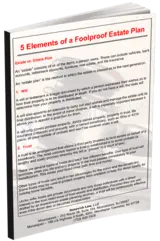In most cases, a court will carefully review the terms of a last will and testament before authenticating it. It is rare for the court to challenge a will, and challenges based on fraud are even less common. However, there are times when fraud can complicate a will and make it more challenging for assets to be distributed adequately.
If you need help challenging a will or understanding fraud in Moorestown wills, our legal team is here to offer guidance. An experienced wills attorney could assess the document in question, help you challenge it, or protect your rights if you are accused of fraudulently creating a will.
Understanding Fraudulent Wills
There are different ways that fraud could impact a last will and testament. Some instances of fraud occur in the creation of the will, while others happen during the execution phase. It is even possible to commit fraud when administering a will.
Fraud in Creation
One of the most common types of will fraud occurs during the drafting of a last will and testament. In some cases, a person could create an entire will that is entirely fraudulent and flawed. In other cases, a person could fraudulently alter the terms of a viable will or trick someone into signing a will. One of the primary ways to avoid this type of fraud is to have an experienced lawyer in Moorestown draft a last will and testament.
Fraud in Execution
Meanwhile, fraud is common during the execution of a will, the process where a person signs the document in the presence of witnesses. Fraud during the execution of a will could involve forging a signature on a will that was never executed by the creator, or not actually signing it in the presence of witnesses.
Fraud in Administration
After a will is executed and the author passes away, the executor of the estate has an obligation to carefully follow the terms of the will. Unfortunately, not every executor will uphold that duty. Fraud can occur when the administrator misappropriates funds or fails to follow the terms of the will. For example, if they ignore the requirement to pay creditors or they distribute property to the incorrect beneficiary, they might face allegations of fraud. If a beneficiary needs help alleging fraud during the process of administering a will, our legal team could assist.
How to Challenge a Will
When there is evidence of fraud, it is possible to challenge the validity of a will during probate. However, it is important to understand that not everyone has the right to contest a last will and testament. Only a party with “standing” can pursue a challenge in the court system.
A person has standing when they have a recognized interest in the will. For example, beneficiaries or people who believe they were unfairly left out of a will due to fraud could have standing to challenge the document. Similarly, someone who could potentially inherit assets after the invalidation of a fraudulent will could also have standing to contest the arrangement.
Once a person has standing to challenge a will, they must implement evidence of fraud. A tenacious Moorestown attorney could help with this stage of contesting a fraudulent testamentary document.
Call an Attorney About Fraud in Moorestown Wills
If you believe a will you have interest in was fraudulently drafted, administered, or executed, now is the time to speak to an attorney. You could be entitled to challenge the document, but only if you can show you have standing.
Our seasoned legal team could advise you on how best to deal with fraud in Moorestown wills. Call right away to learn more.

 (856) 439-6223
(856) 439-6223
